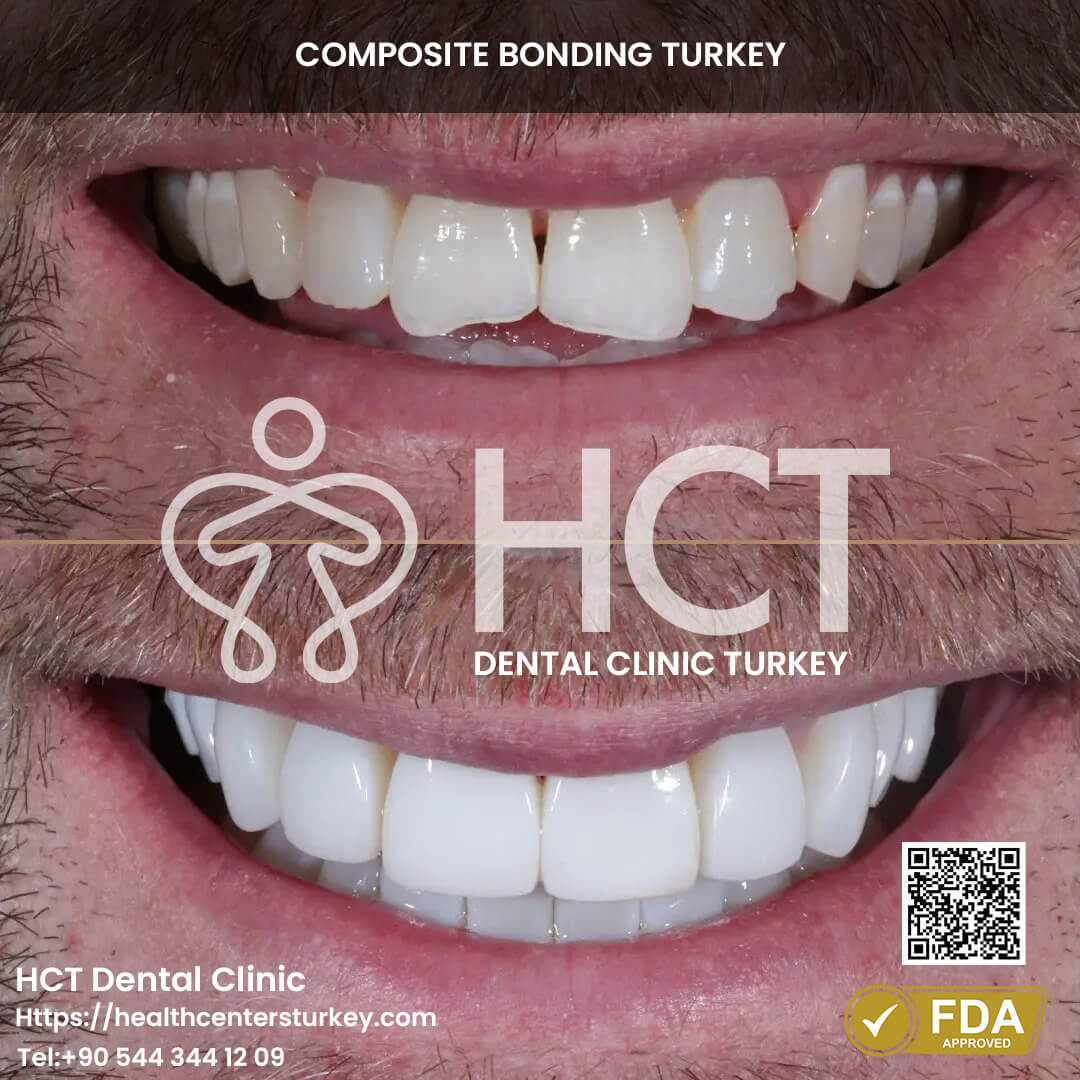Premium Cosmetic Veneers for a Stunning Smile in Turkey

Dental implants have become a focus in fashionable dentistry, offering a reliable answer for these dealing with tooth loss. Among the a quantity of benefits they provide, one vital facet worth considering is their influence on adjacent teeth. Understanding how dental implants have an effect on surrounding teeth aids in making informed choices about oral health.
When a tooth is misplaced, neighboring teeth can easily shift towards the space left behind. This motion can result in misalignment, which compromises the overall chew and function of the mouth. Dental implants mimic natural tooth roots, thereby sustaining the position of adjacent teeth.
Highlighting the Best Oral Health Solutions in Turkey for Beautiful Smiles
The stability offered by an implant is crucial, as it helps in preserving not just the physical alignment but also the structural integrity of the jawbone. When a tooth is missing, the underlying bone can start to deteriorate due to lack of stimulation. An implant exerts strain on the bone throughout chewing, just like a natural tooth, which promotes bone health.
In some circumstances, a bridge or partial denture may be thought-about as an alternative to implants. While these options might restore some performance, they can place further stress on neighboring teeth. Bridges normally require filing down the surrounding teeth to accommodate the anchors, thereby affecting their health over time. Dental implants, however, don't alter existing teeth, making them a more conservative alternative.
Explore Affordable Oral Care Solutions throughout Turkey
Hygiene becomes one other important issue when considering adjacent teeth in the context of implants. With dental implants, the person can keep a regular hygiene routine similar to natural teeth. Flossing and brushing around the implant are straightforward, ensuring that the gum tissue stays healthy and minimizing the chance of gum disease that would adversely affect adjacent teeth.
Moreover, the supplies utilized in dental implants are biocompatible. This means they're designed to combine well with the body, reducing the possibilities of an adverse response. This attribute not only makes the implant secure but additionally protects nearby teeth from potential issues that would arise as a outcome of contamination or infection.
In phrases of aesthetics, dental implants provide a natural feel and appear, carefully resembling authentic teeth. Adjacent teeth profit from this aesthetic enchantment as nicely. When an implant is placed, the encircling gum tissue could be formed to imitate natural contours, thereby enhancing the general appearance of the smile. This aesthetic factor can encourage people to spend cash on their oral care routines, benefiting both the implants and adjacent teeth in the long run.
Skill in Restorative Dentistry at Affordable Rates
Another concern is the potential for gum disease, which may affect the health of adjacent teeth. Gum disease can happen when plaque builds up around teeth and implants. Regular dental visits and applicable oral hygiene can mitigate this concern. The presence of implants also can serve as a motivator for better dental hygiene practices, as individuals turn into extra conscious of maintaining their total mouth health.
Studies have proven that dental implants can contribute to a major improvement in quality of life. Patients usually expertise elevated confidence and are much less hesitant to smile or have interaction in social interactions. A wholesome and well-maintained smile indirectly promotes better take care of adjacent teeth, as individuals are likely to turn into extra conscious of their general oral hygiene.
One often-overlooked facet is the psychological impact of dental implants on patients. Knowing that implants provide long-term options can ease the anxiousness associated with tooth loss. With fewer worries about future tooth shifts, patients usually have a tendency to make investments time and effort into caring for their teeth, which incorporates adjacent teeth.
In conclusion, dental implants serve as more than only a answer for missing teeth; they play a pivotal function in sustaining the health and integrity of adjacent teeth. From preventing misalignment to promoting gum health and enhancing aesthetics, the advantages are manifold. By opting for implants, people can not solely restore functionality but additionally foster a healthier oral setting for surrounding teeth. The psychological and aesthetic benefits additional contribute to an general enhanced quality of life.
Cosmetic Dentistry Services Available in Turkey
In the long term, understanding how dental implants affect adjacent teeth can guide people in making empowered decisions regarding their dental health. The integration of those implants into the index mouth acts as a stabilizing force, safeguarding each the bodily alignment and functionality of neighboring teeth, whereas promoting a long-lasting, wholesome smile.
- Dental implants sometimes do not exert strain on adjacent teeth, maintaining their integrity and decreasing the risk of shifting or misalignment.
- The placement of an implant often encourages higher oral hygiene habits, positively influencing the health of adjacent teeth by way of improved cleaning practices.
Trustworthy Braces and Aligners provided in Antalya
- In some cases, dental implants can stimulate the encircling bone, which helps protect the natural teeth's position and overall dental structure.

- The hole left by missing teeth can lead to bone loss; dental implants can prevent this, thereby protecting adjacent teeth from potential issues.
- Enjoy Luxury Dental Care in Turkey at Competitive Prices
Effective Braces and Aligners offered in Turkey
- By restoring the function of a missing tooth, implants assist distribute bite forces evenly, lowering put on and stress on neighboring teeth.

- Properly positioned dental implants can act as a assist structure, stopping undesirable motion of adjacent teeth resulting from tooth loss.
- The presence of an implant might enhance the aesthetic appearance of surrounding teeth by filling in gaps and supporting facial structure.
Your Path to a Perfect Smile with Implants and Veneers
- Dental implants get rid of the need for adjacent teeth alteration, not like bridges, which require reshaping the nearby teeth for support.
- Implants also reduce the risk of gum disease in comparison with other tooth replacement options, not directly benefiting adjacent teeth by selling general oral health.
Restore Your Teeth with Leading-Edge Dental Treatments in Turkey.
- Long-term success of dental implants is linked to the health of surrounding teeth, emphasizing the significance of standard dental check-ups and maintenance.
How do dental implants have an result on adjacent teeth?
Find Your Path to a Beautiful Smile with High-Quality Dental Care
What are dental implants and the way do they work with adjacent teeth?undefinedDental implants are synthetic tooth roots placed into the jawbone to help replacement teeth. They don’t have an effect on adjacent teeth directly, as they are independent constructions. Instead, they can help preserve the integrity of surrounding teeth by stopping bone loss.
Can dental implants trigger injury to adjacent teeth?undefinedIf placed accurately, dental implants mustn't hurt adjacent teeth. However, improper placement can lead to issues like misalignment or strain, emphasizing the significance of selecting an experienced dental professional.
Will dental implants promote bone growth round adjacent teeth?undefinedYes, dental implants assist stimulate the jawbone, which can encourage bone growth. This can profit adjacent teeth by maintaining bone density and stability in the space.
Benefit from Excellent Dental Care at Unbeatable Prices
Should I worry about gum disease affecting adjacent teeth after getting an implant?undefinedGood oral hygiene is crucial after getting an implant. Gum disease can nonetheless affect adjacent teeth, but a properly maintained implant doesn't improve that risk. Regular dental visits might help monitor and keep gum health.
What happens to adjacent teeth if I lose a dental implant?undefinedIf a dental implant fails or is misplaced, adjacent teeth might shift as a end result of changes in chunk alignment and help structure. This could result in misalignment or Read More Here further tooth loss if not addressed.
Are there any special care necessities for adjacent teeth after getting implants?undefinedMaintaining good oral hygiene practices, including common brushing, flossing, and dental check-ups, is important for both dental implants and adjacent teeth to forestall decay and gum disease.
Enhance Your Dental Aesthetics with Affordable Options in Turkey
Do dental implants assist help adjacent teeth when chewing?undefinedAbsolutely. Implants can improve total chew function, which might alleviate stress on adjacent teeth during chewing. This can result in better distribution of forces, selling oral health.
How can I prevent problems with adjacent teeth and implants?undefinedConsistent dental care, including skilled cleanings and examinations, regular brushing and flossing, and following your dentist’s aftercare directions, are key to preventing issues.
Can adjacent teeth move if I have a dental implant?undefinedAdjacent teeth might move if they are not well-supported, particularly after tooth loss. A dental implant helps maintain the structure, decreasing the risk of shifting teeth.